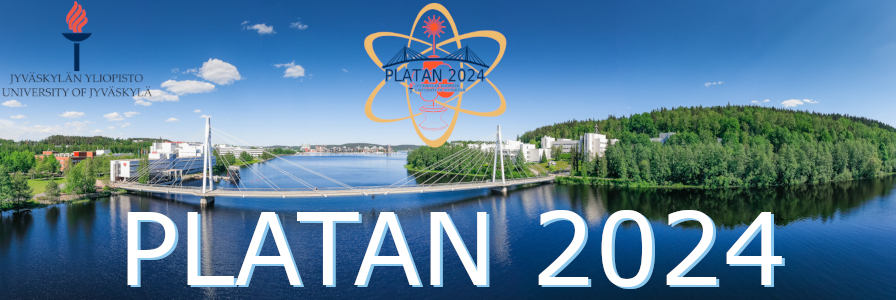Speaker
Description
The fundamental properties of unstable nuclei are highly related to the nuclear structure and effective nucleon-nucleon interaction, which can be used to study various exotic structures of the unstable nuclei [1]. Laser spectroscopy technique is one of the powerful tools to study the nuclear properties (i.e. spins, moments and radii) by probing the hyperfine structure (HFS) and isotope shift of the corresponding atoms or ions [1].
To study the unstable nuclei at the radioactive ion beam facilities in China, our research group has developed a collinear resonance ionization laser spectroscopy setup [2]. The setup has been firstly commissioned offline with stable Zn and Ti nuclei by measuring their optical spectra. To further improve the quality of the ion beam and the measurement sensitivity of the setup, a compact Radio-frequency Quadrupole cooler and buncher (RFQ) [3] was implemented, allowing to provide a better beam profile and time structure of the ion bunches.
In this talk, the details of the collinear resonance ionization laser spectroscopy setup as well as the RFQ system will be presented, together with the results from the offline commission experiment. A planned online laser spectroscopy experiment using this setup at the Beijing Radioactive Ion-beam Facility [4] will also be discussed.
[1] X. F. Yang, S. J. Wang, Wilkins S G, et al. Prog. Part. Nucl. Phys, 129, 104005 (2023).
[2] P. Zhang, H. R. Hu, X. F. Yang, et al. Nucl. Instrum. Methods Phys. Res. B. 541, 37-41 (2023).
[3] Carina Kanitz. Master’s thesis, Universitätsklinikum Erlangen (2021)
[4] T. J. Zhang, B. Q. Cui, Y. L. Lv, et al. Nucl. Instrum. Methods Phys. Res. B. 463, 123-127 (2020).

